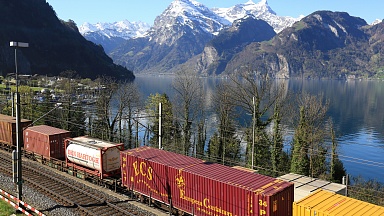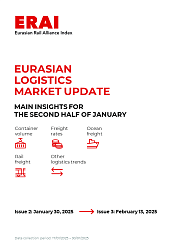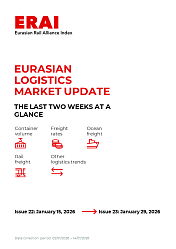Cousaert took the stage in a session about terminal technology, but in fact, it is the whole supply chain that must be taken into account, he noted. «This supply chain has been there for 1000 years, but technology for less than 20 years. So, how do we connect the supply chain with technology?»
How to solve yard congestion?
The expert came up with an example. «When more trains are on the tracks, yards will get congested. Trains will depart delayed, and arrive delayed. Next time, the customer may look for a competing terminal, or maybe even for a competing modality.»
Situations like these can be prevented, he believes. This starts with improved visibility: if you see where your trains are, you are able to understand why trains depart at a certain time. And once you know the reason behind a delayed train, you are able to make better decisions the next time, he explained.
Predicting the future
«Machine learning and Artifical Intelligence play an important role here. These may be terms you have often heard of, but have not been able to use just yet. But, as we are getting more and more data, these techniques can prevent future occurences by describing actions to take and decisions to make.»
However, with more data come more challenges. «More data also means that it is getting more decentralised, and you will see security breaches. Hence, you will need to think of cyber security. Cloud-based solutions are a very popular solution, but not everyone understands the advantages.»
Navis
Navis is providing various IT solutions. Traditionally it focused a lot on container traffic, but as the market is changing, it is now also looking at more cargo more generally, and at various types of terminals. In order to cover the supply chain as a whole, it offers various solutions.
For example, with our solution Master Terminal we focus on multimodal terminals, with ro-ro traffic, drybulk, breakbulk etc. With our solution Octopi we cater to small and mid-sized terminals or greenfield projects. With the Navis Rail Operations System we help customers optimising the operations of trains, locomotives, wagons and crew."
RailFreight Live
This week in RailFreight Live, we talk about innovative solutions, and how they help the rail freight industry. We take a look at some interesting concepts, such as the foldable container of 4Fold. We also talk about the future of alternative fuels with the CEO of the brand new company NexRail. Our guests are Hans Broekhuis, CEO of 4FOLD Containers and Luuk von Meijenfeldt, CEO of NexRail.





